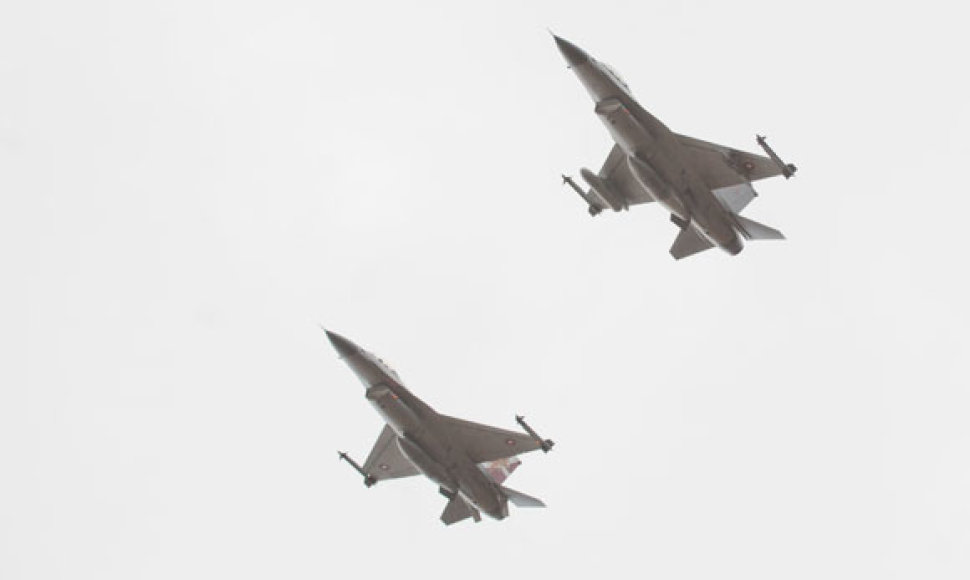The contribution of Lithuania, Latvia and Estonia to the mission amounted to 2.2 million euros in 2011, with the annual amount planned to reach 3.5 million euros by 2015, the Lithuanian Defense Ministry said.
"The Baltic states share the costs incurred by the receiving country nearly equally. In 2011, the costs stood at about 2.2 million euros. Respectively, Lithuania's share is about 700,000 euros. The countries also agreed to gradually raise the annual costs to approximately 3.5 million euros, which will be divided equally (among Lithuania, Latvia and Estonia)," the ministry said in a response to BNS.
The three Baltic states committed themselves to boosting the support of hosting countries amid their efforts to secure extension of the air-policing mission after 2014. The mission was recently extended, with next revision planned in 2018.
According to the statement, plans are to expand the volume of services provided to Allied contingents and fighter-jets deployed at the Lithuanian Air Force Aviation Base in Šiauliai – "provide additional flights of Spartan for deployment and re-deployment of air-policing contingents, reimburse for the bulk of accommodation costs, as well as allocate more funds for communications and utility services, de-icing."
Compensation for some of the costs of aviation fuel should be started as of this year.
"We plan to start compensating for fuel for deployment and re-deployment of contingents, later for response and training flights of the fighter-jets," the ministry added.
Lithuania's Defense Minister Rasa Juknevičienė has emphasized that the costs incurred by Lithuania and the other two Baltic states were incomparably lower than the costs of purchasing fighters of their own.
According to the press release, the Lithuanian, Latvian and Estonian contribution to the mission will have to be increased further in the future.
The ministry also said that, in order to facilitate the necessary conditions for a smooth air-policing mission, Lithuania is improving its air space surveillance system and purchasing new long-distance radars.
"Reliable surveillance and control of the air space that is in line with NATO standards are a pre-condition for the air-policing mission. Air surveillance instruments are not only used for air space monitoring and identification of violations but they also send signals to raise the jets, control the jets and guide them to offenders," reads the press release.












